Charlemagne was determined to carry out his ambitious educational and cultural agenda to reform and renew both the church and society. To achieve this goal, he issued a decree to bishops and abbots to create schools in every monastery and bishop’s residence for the sons of both serfs and freemen. He then instructed these schools to teach the boys psalms, music, math, and grammar and to provide the students with “correct Catholic books.” If new copies of the books were needed, Charlemagne decreed, “Let men of full age do the writing, with all diligence.”

A Beehive of Activity
Overseeing book production became a major occupation for many of the scholars Charlemagne brought to his court. They gathered manuscripts of ancient Roman writers and church fathers, edited them, and had copies made in scriptoria, where trained monks and professional scribes with quill pens and black ink carefully copied the corrected texts. Thus, many older works that had been written originally on papyrus and were in poor condition now received a new, longer-lasting life on parchment.
هذه القصة مأخوذة من طبعة January 2018 من Dig Into History Magazine for Kids and Teens.
ابدأ النسخة التجريبية المجانية من Magzter GOLD لمدة 7 أيام للوصول إلى آلاف القصص المتميزة المنسقة وأكثر من 9,000 مجلة وصحيفة.
بالفعل مشترك ? تسجيل الدخول
هذه القصة مأخوذة من طبعة January 2018 من Dig Into History Magazine for Kids and Teens.
ابدأ النسخة التجريبية المجانية من Magzter GOLD لمدة 7 أيام للوصول إلى آلاف القصص المتميزة المنسقة وأكثر من 9,000 مجلة وصحيفة.
بالفعل مشترك? تسجيل الدخول
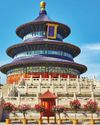
Worshiping Heaven
For almost 500 years, emperors of the Ming and Qing dynasties offered sacrifices and prayers at the Temple of Heaven in Beijing.
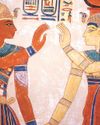
Peace Reigns
The news spread throughout Egypt—a new pharaoh, Ramses III, now sat on the throne.
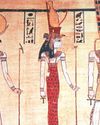
Problems To The East
Ramses III, the second king of Egypt’s 20th Dynasty, is viewed as Egypt’s last truly great pharaoh.
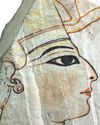
The Successors
Following the death of Ramses III, eight pharaohs, all named Ramses, ruled Egypt.
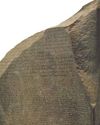
Stone Code
Hundreds of ships, led by the French general Napoleon Bonaparte, sailed from France in May 1798 on a secret mission.

Up & Away!
Eclipse observers often face unexpected difficulties, sometimes on their way to their chosen sites and sometimes at a site itself.

Edison's Eclipse Adventure
Thomas Edison (1847–1931) is the best-known inventor in American history.
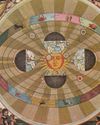
Digging Up Copernicus
The scientist “who made the Earth a planet” is how the Harvard-Smithsonian astronomer Owen Gingerich refers to Nicolaus Copernicus (1473–1543). Copernicus’ path breaking book, On the Revolutions of the Heavenly Spheres,challenged the centuries-old belief that the Earth stood stationary at the center of the cosmos.
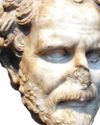
Demosthenes & Cicero
Even today, more than 2,000 years after they lived, Demosthenes and Cicero are still considered two of history’s most outstanding orators.
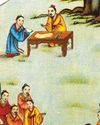
Confucius & Socrates
Some teachers are so inspirational that their influence lives on long after they die.